
Where couples divorce – or don’t – and why
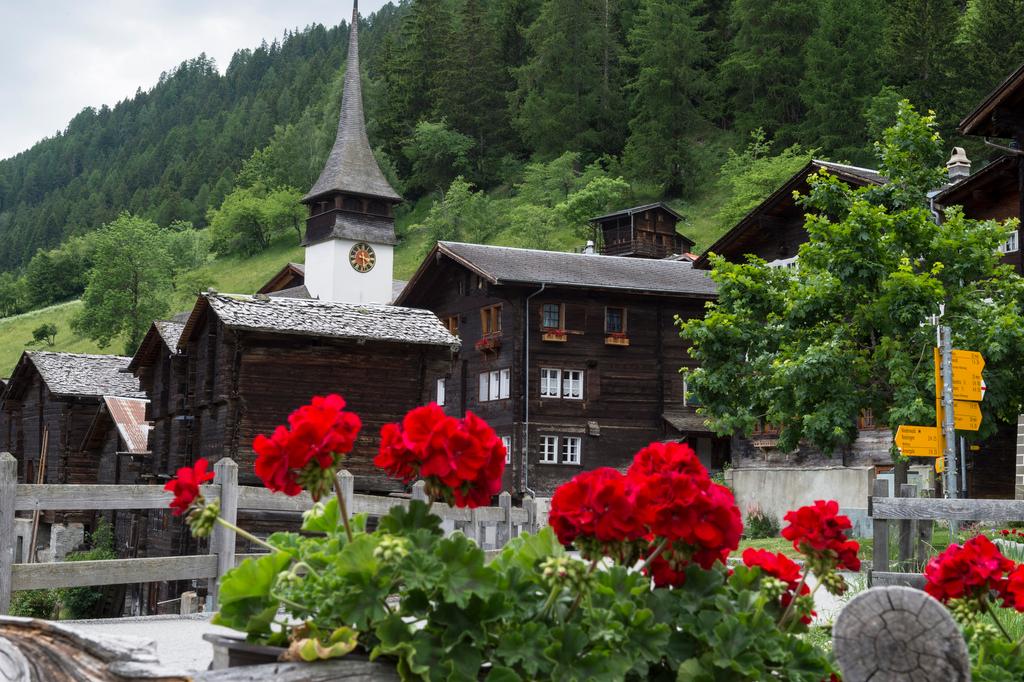
Switzerland’s divorce rate is pretty average, but there seems to be a (sub)urban-rural divide hinting that life in the country is more conducive to wedded bliss. Or is it?
If you map out rates across the nation, you’ll notice that divorce is most common near urban centres. Yet it seems that many Swiss bedroom communities – often in green and picturesque places – see higher rates, too.
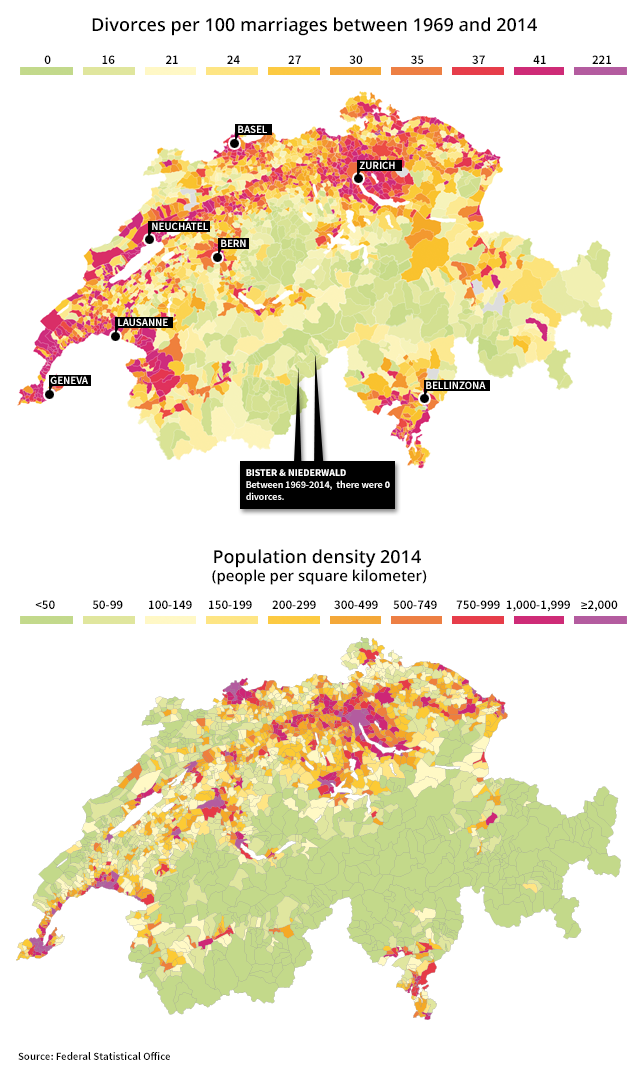
In the Zurich metropolitan areaExternal link over the past four decades, divorce rates of ≥40 for every 100 marriages are common – higher than in the city of Zurich itself (35 per 100). In an effort to figure out why, I visited the small town of Adlikon bei Andelfingen, which is a 30-minute drive from Switzerland’s banking capital. With a restaurant, a hair salon and a primary school, it’s neither a self-sufficient village nor a truly rural one.
At lunchtime, most of the restaurant’s tables are full – the clientele ranging from off-duty cops to senior citizens meeting for a card game. A couple of women on their lunch break are surprised to hear about the high divorce rate.
“That’s interesting! I guess that’s why I’m not getting married,” jokes the middle-aged one as the younger one giggles.
Or perhaps the tranquil environment is too dull for some, muses a civil servant, “People dream of a house in the country, and then maybe it’s too much ‘country’ – at least for one partner. And then you have a problem.”
Role of religion
Upon seeing the divorce map, a grandmotherly woman says that religion is the reason why there are so few break-ups in some parts of Switzerland.
“Those are the Catholic areas. We’re much freer here,” she says, “here” being the generally Protestant municipalities in canton Zurich. Adlikon itself hasn’t got a church at all, though neighbouring Andelfingen has both Catholic and Protestant ones.
In mountainous – and predominantly Catholic – canton Valais, there are two villages where it seems no couple has ever gotten divorced. Locals here can think of a few reasons why not.
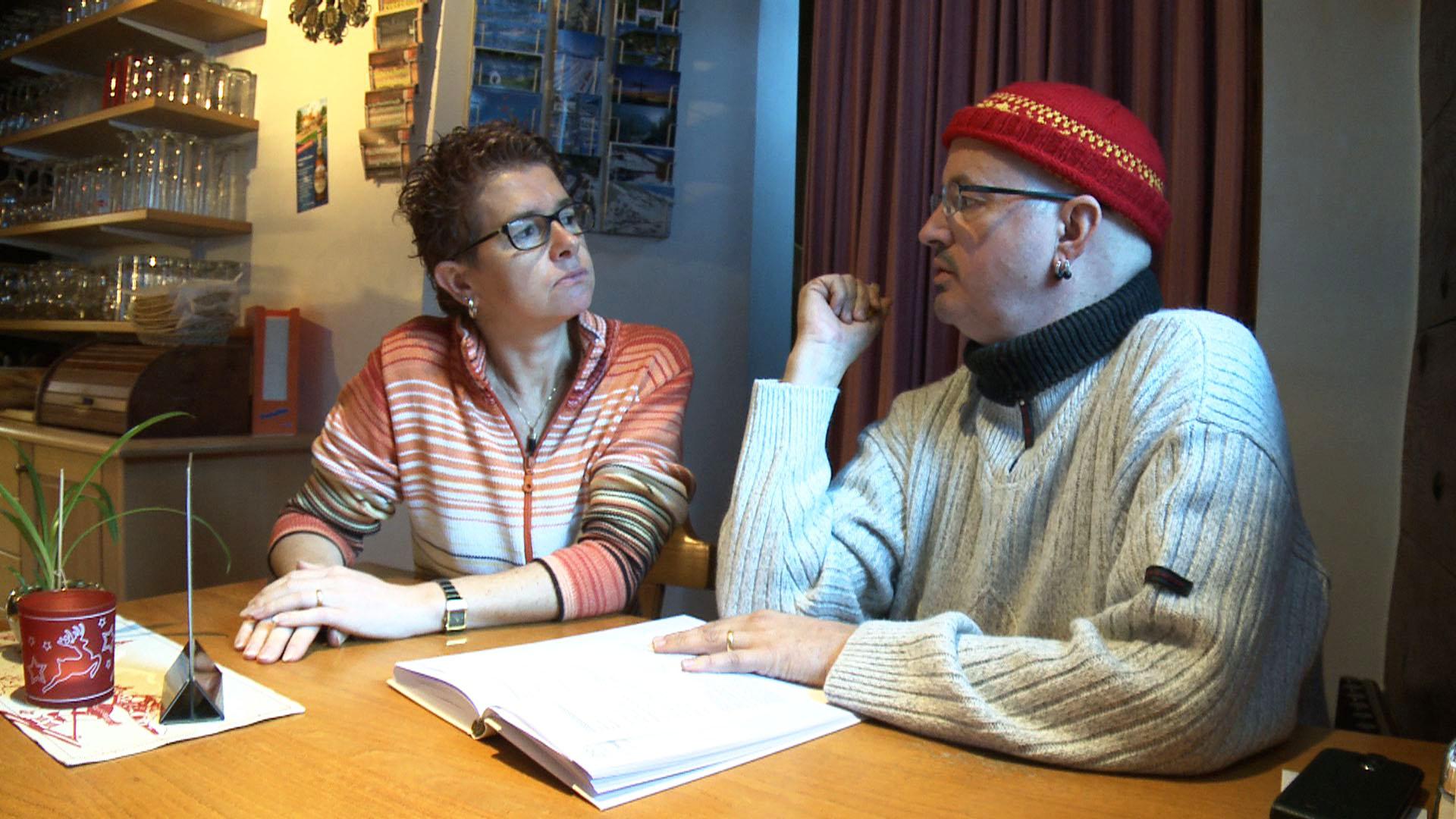
More
Do these villages hold the secret to a happy marriage?
Asked whether religion is really such a key factor, University of Zurich sociologist François Höpflinger is sceptical – but says it could have some influence in terms of divorce rates.
“Rural areas are more likely to be Catholic, and urban Protestant, though I think the differences are blurring,” Höpflinger told swissinfo.ch. In any case, social mores have changed. Back at the restaurant in Adlikon, the grandmother observes: “It’s OK for children to be born out of wedlock today. But 40-50 years ago, they were taken away.” Another patron, a silver-haired man, adds that it’s also more acceptable for people to not marry at all these days. But both say they know a number of couples who’ve been married for 20-40 years.
Living apart together
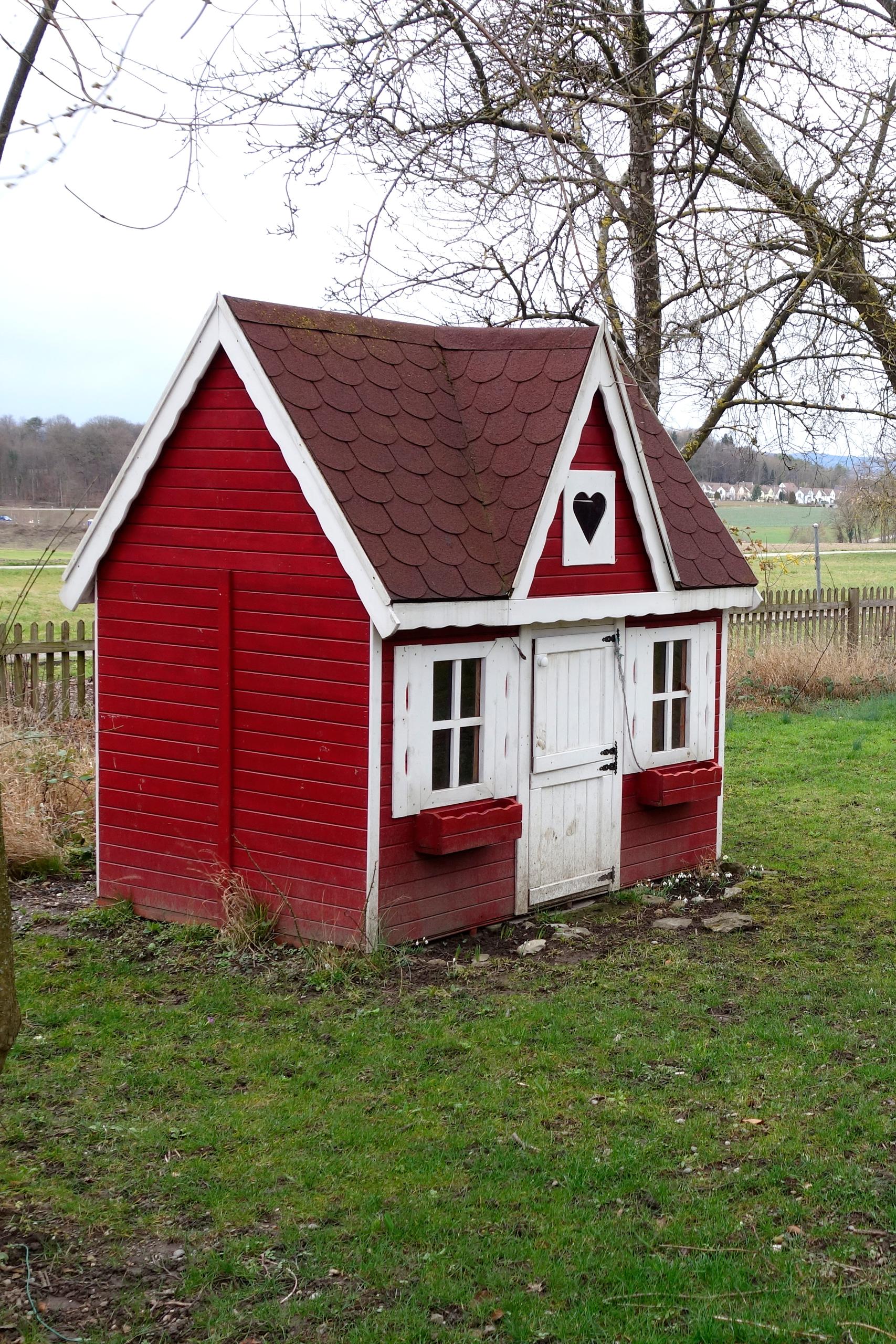
As Höpflinger points out, it’s tricky to interpret marriage and divorce statistics.
“In cities, couples often don’t even get married. So any ‘divorces’ are then unofficial, as it were, since nobody records those break-ups. That’s part of the reason why the Swiss divorce rate has gone down – because fewer people are getting married,” Höpflinger says.
In 2014, about 42,000 couples tied the knot in Switzerland. In comparison, the late 1960s saw about 46,000 weddings per year, and the year 1991 saw an all-time high of 47,567. The Federal Statistical Office has marriage records dating back to 1801.
Among those who do marry, staying married doesn’t necessarily mean that they’re happy, points out Höpflinger. “It seems that in most countries, the divorce rates have been going down because people have more ways of mitigating conflict than before. For example, by ‘living apart together’ or via open relationships.”
Leaving Adlikon I meet a man walking his dog, and strike up a conversation. Hearing that divorce is so common in the area intrigues him – and seems to cheer him up.
“I’m going through it myself,” he says. As it turns out, he and his wife separated in January.
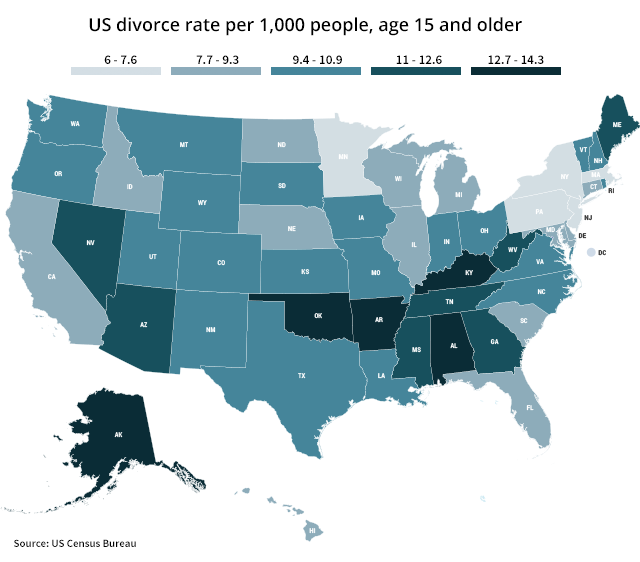
Switzerland compared to the US
Religion plays a bigger role in the United States than it does in Switzerland. In the US, divorce is often more common in rural areas – and less so in the Northeast, where levels of education and the ages of the brides and grooms tend to be higher.
“In the United States, belonging to a religion is a big deal – more so than in Switzerland or Europe. There are religions that ban divorce, and sex before marriage, and they exact a certain amount of social control,” according to University of Zurich sociologist François Höpflinger.
University of Texas sociologist Jennifer Glass says it is religion and culture – more so than location – that influence divorce rates in the US.
“In the South, conservative religious beliefs (Christian religious fundamentalism) lead communities to deny comprehensive sexuality education and encourage youth to abstain from sex until marriage,” Glass told swissinfo.ch.
She notes that shotgun weddings are still common in the South, as many believe that both contraception and abortion are sinful.
“Youth who do engage in sex tend to get pregnant quickly and marry to resolve the pregnancy. So it’s the combination of conservative beliefs about sex and less emphasis on educational attainment that result in lots of early marriages between two young people with inadequate education and training to support themselves, coupled with early and frequent childbearing. It’s a recipe for higher divorce rates,” Glass says.
Contact the author on Twitter @SMisickaExternal link or on WordPressExternal link.

In compliance with the JTI standards
More: SWI swissinfo.ch certified by the Journalism Trust Initiative


























You can find an overview of ongoing debates with our journalists here . Please join us!
If you want to start a conversation about a topic raised in this article or want to report factual errors, email us at english@swissinfo.ch.